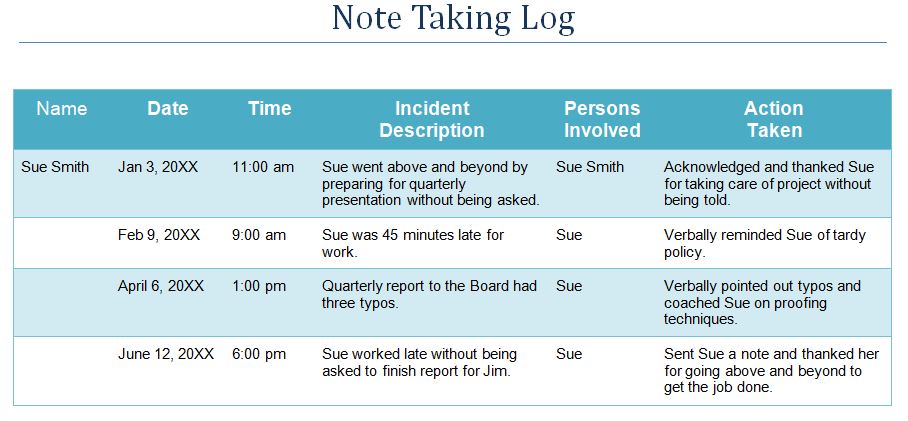Estimated reading time: 6 minutes
Churches are unique in that members fund the mission, volunteers are the free labor, and employees facilitate the process.
These committed employees work with limited resources and wear many hats.
Managing church employees can be a very rewarding experience because influencing and participating in an employee’s professional development is just fun! Managers of these employees need to learn the skills for proper management.
Anyone who has managed others understands that not all employees follow instructions and perform job duties as written in a job description.
Unfortunately, there are times when an employee just isn’t the right fit and needs to move on.
These are very stressful times that result in lost sleep for the involved manager.
What adds to the difficulty is the sudden realization that the proper documentation of the months of performance issues is nonexistent.
We’ve all been there. An issue with an employee comes up. It looks like it’s time to either take some corrective action or maybe even terminate.
What is the first question asked? “Did you document?”
Why is documentation important?
Documentation of employee performance creates a written history of how an employee works. This valuable document provides the necessary information needed to justify a job promotion or a termination.
Documentation is much easier said than done.
We all have good intentions, but when time is short, and responsibilities are great, documentation often gets lost in the shuffle.
The whole point of documentation is to have the pertinent information available to justify performance appraisal scores or disciplinary action.
It is important to focus on making notes on every employee conversation that involves performance or compliance with policies and procedures – both good and bad.
Performance Appraisals Should Tell a Story
Performance appraisals should tell a story of an employee’s performance. Some think that performance appraisals are done only to correct behaviors.
And while correcting behavior is an important part of the performance appraisal process, it is also important to acknowledge when an employee goes the extra mile to get the job done.

For instance, let’s say that Justin worked late in the evening to finish a promotional video for Sunday’s church service. Take the time to thank Justin for going above and beyond to get the job done, and then make a note of it in his file. These regular notes will be invaluable when it comes time to create the annual performance appraisal.
The positive notes can bring balance when a few corrective comments are documented.
4 Employee Documentation Mistakes
1. Unclear Expectations
I’m always amazed at how many managers never have a conversation with employees about the details of the job.
It is only fair to make sure that employees have a clear understanding of what is expected of them.
This starts with providing them with a written job description and annual goals that the employee and manager discuss to ensure clarity.
For instance, when a new employee is hired, the hiring manager should spend time reviewing the job description in detail and allowing the new member of staff to ask questions about expectations.
This conversation should be done annually and be part of the employee management process.
2. Not Having a Documentation Process
Most functions at work require a process. One mistake managers make is not creating an employee documentation process.
This process does not need to be complex but does need to be consistent.
The process can be as simple as a handwritten log for each employee or using an electronic document to note conversations, issues, and employee corrections.

It is difficult to justify corrective actions or termination without a detailed history to support it.
In the same way, it is extremely helpful to have a written history of an employee who demonstrates great performance.
3. Vague Information
Documenting employee conversations does not need to be a dissertation, but it does need to have enough information to base an action on.
For example, “Customer service issue with Steve today” is pretty vague. However, “There was an issue with Steve today being rude to a customer.
Steve left Mr. Wilson on hold for 6 minutes without offering Mr. Wilson an explanation or response to his issue.”
Remember to include enough information to tell the story of the incident if needed months down the road.
4. Opinion Not Fact
As human beings, we have the tendency to bring biases to the workplace.
Oftentimes, these biases are subtle, and we may not even be aware of them.
For this reason, it is important to be aware of our personal biases when recording behaviors and make sure that documentation is based on fact and not opinion.
For example, “Charlie submitted his proposal after it was due,” but the fact is, “Charlie submitted his proposal 30 minutes after it was due in my office due to an issue with his printer.”
The difference in wording can paint a very different picture of the incident.
Yes, Charlie was late, but when reviewing performance, will 30 minutes be critical, considering he had printer issues?
Create A Process for Documentation
Managers wear many hats and juggle lots of different responsibilities, making it difficult to be consistent with employee documentation.
Create a documentation process that is consistent and based on factual, clear information. This consistency in practice is the best approach to maintaining useful information in an employee file.
Consistent and fair employee documentation allows for unbiased evaluations and provides critical information when justifying an employee raise or corrective actions are necessary.
If you are a member, you can access a note-taking log here.
If you are not a member and would like to access an editable copy of a note-taking log and other HR form examples you can learn more here.



